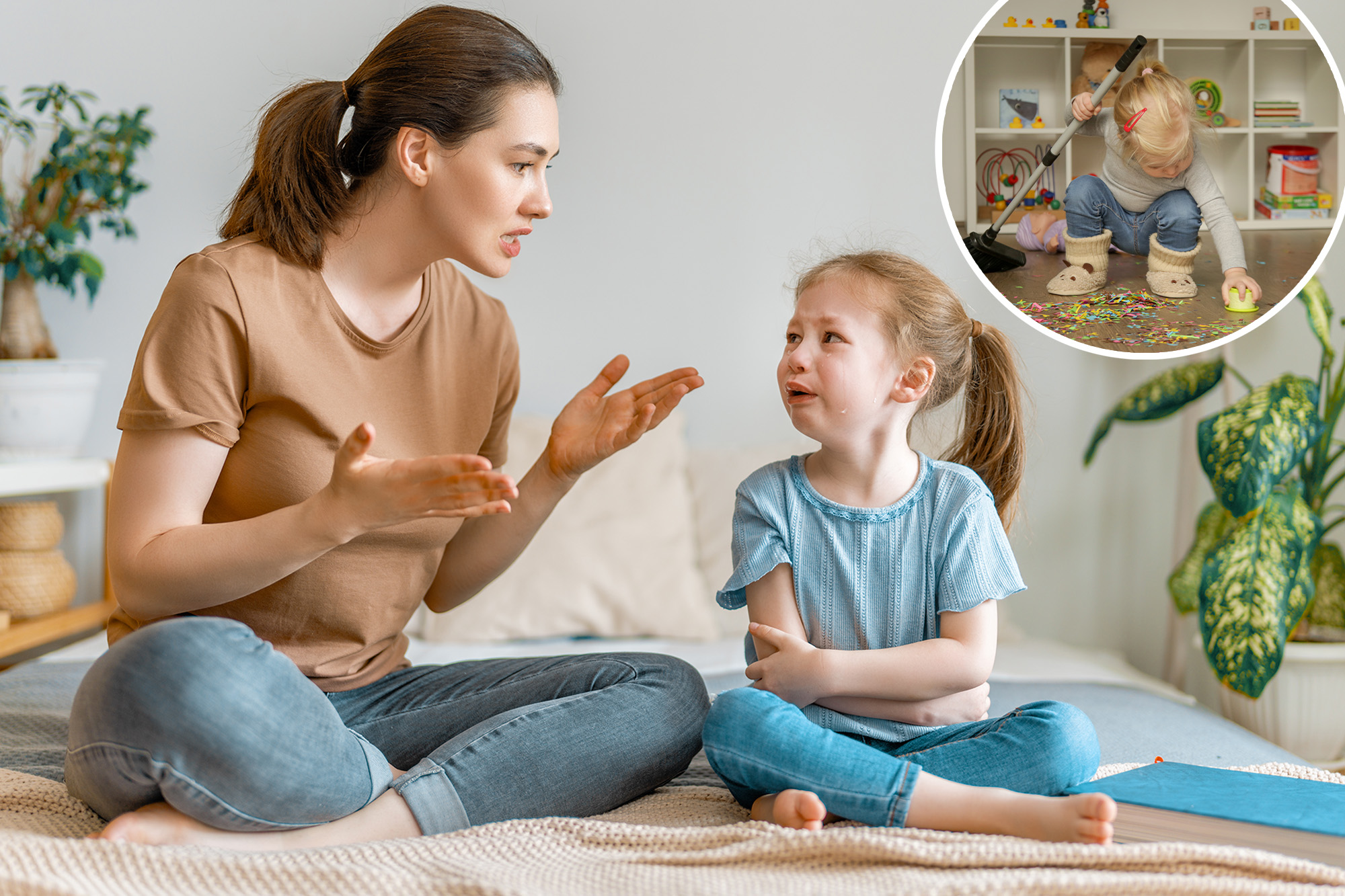
Parents should be careful About the wearing of this warning.
Tots, small and ticks – newcomers in this large, dangerous world – can often be drawn at risk as a moth to throw away. They are like small daredevils.
So, to keep them safe from the injury, the benefits of parents are advising mothers and fathers to avoid this common command: “Be careful.”
“When we say,” Be careful “, all the time in repetition, just begins to say nothing to them,” Deena Margolin, a licensed marriage and family therapist, told the parade. “For young children, many times, this phrase is simply not quite specific to them. It doesn’t mean much.”
It is a call for care that may lose its brightness over time, according to parents’ coach Kristin Gallant.
“When you follow your baby around and go,” Be careful, be careful, be careful, be careful, “suddenly when there is a hot stove or a car is coming, they are fixing you whenever you say, ‘be careful,” said Gallant, who co-pars Podcast “Big Little feelings” with Margolin.
“So the dangerous thing is happening and they are like,” whatever “, and they continue,” Gallant added.
Warning with good meaning can cause anxiety in the little ones.
“We have such good intentions after him – we love our children, so much, we want them to be safe,” Margolin said.
“Let them take risks and explore things and get confused, like this is so good for their development,” the doctor continued. “So how can we teach them to be really careful without making them nervous or frightened, and encouraging them to take age -appropriate risks?”
It is a thing similar to that of parents who praise their children with potentially harmful phrases such as “good work” or “good guy” and “good girl”.
Experts have previously discovered that seemingly benign affirmations can be encountered as disingenuous, letting children feel invalid and unconfirmed.
Fortunately, Margolin and Gallant have come up with some effective “careful” alternatives that can help young people build consciousness and use critical thinking (hopefully) to resist that touching that open flame.
Here are the big small substitute sayings from the emcas of “big small feelings”.
1. “Look down where you are trampling.”
This drives your child to be aware of their surroundings.
2. “Stand tightly with your hands.”
Suggest a useful action, such as holding tight, if necessary.
3. “What is your plan here?”
“I love him,” divides Margol. “Really allows them to tune and make a plan for themselves.”
4. “Do you see how close you are on the edge?”
“Many times, they are standing in something, they are on the rocks,” Margolin explains. “We want them to be able to look inside and make their evaluation and choices so that, ultimately, they can really be in that situation independently, where they are,” Am I careful? “”
5. Say ‘help’ if you need my help. “
“[This is] Another I love, “says Margolin.” That way, they are in its control. They are responsible, but they know we are there if they need us. “
6. “Do you feel safe?”
This fast gives children a chance to self-reflect and think about how they are feeling at that moment as they look closer to their surroundings.
7. “How can your hands and feet help you here?”
“When children are climbing, [I’m] Just by reminding them that their hands and feet are a kind like their tool, “divides Margolin.
8. “Notice [insert specific callout.]“
“Here’s an example, another of the rocks (my children love rocks, so I’m thinking about rocks all the time – I love some rocks),” Margolin says. “But by encouraging them,” note how slippery the rocks are before you open like that “, where you are really guiding their consciousness.”
#Parents #careful #word #request #children
Image Source : nypost.com